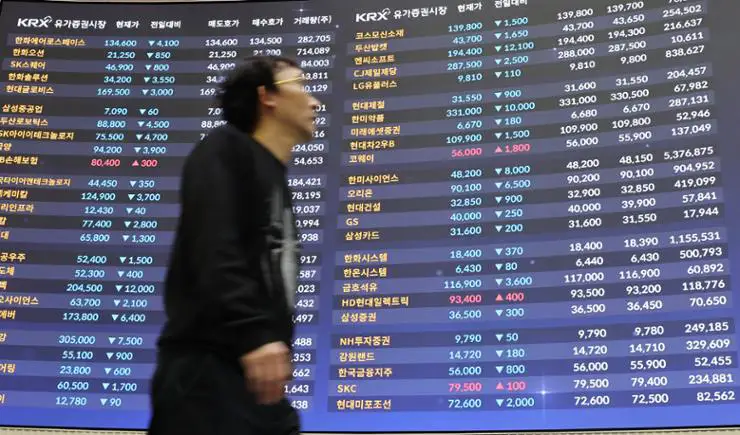South Korea’s financial market watchdog, the Financial Supervisory Service (FSS), has announced the development of a new monitoring mechanism to detect and prevent illegal short-selling trades in the domestic stock market. This move is part of the country’s efforts to address the “Korea discount,” a phenomenon where domestic companies are undervalued compared to their global peers due to factors such as low dividend payouts and opaque governance structures.
Under the new system, all short-selling transactions by institutional investors will be electronically processed and then filtered through a central detection system set up at the stock exchange operator. This double-layered approach aims to identify and eliminate any illegal short-selling activities, which have been identified as a major factor contributing to the Korea discount by undermining market credibility among domestic investors.
In South Korea, the practice of “naked short selling,” where an investor sells shares without first borrowing them or determining they can be borrowed, is prohibited by the Capital Markets Act. The FSS Governor, Lee Bok-hyun, stated that the new monitoring system is expected to “root out illegal short selling” and restore confidence in the domestic stock market.
South Korea has been making various efforts to address the Korea discount, including a sudden ban on short selling of shares last November, which is set to remain in place until adequate measures are implemented to prevent the practice. The country has also proposed to loosen short-selling rules for retail investors while introducing new borrowing limits for institutional and foreign investors once the ban is lifted, in an effort to create a more level playing field in the market.
The FSS has stated that it will implement the new monitoring system after finalizing it in a timely manner, though a specific implementation date has not been provided. This move is part of South Korea’s broader strategy to enhance the credibility and attractiveness of its domestic stock market, ultimately aiming to reduce the Korea discount and attract more investment both domestically and globally.















